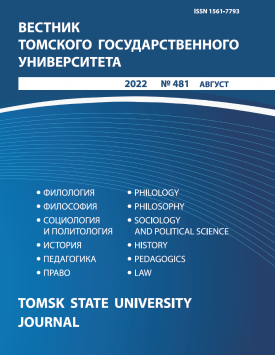Features of the content of international treaties on the Caspian Sea on protection against natural and man-made Emergencies
The analysis of cooperation between states on the protection of the Caspian region against natural and man-made emergencies rarely acts as a subject of research. Most foreign and domestic research articles reveal the peculiarities of environmental problems of this territory and ways to solve them, as well as the problems of consolidating the legal status of the Caspian Sea itself. The aim of this study is, therefore, to provide an idea of the existing mechanism of interaction among the coastal states in the field of protection against disasters of various nature through the analysis of existing agreements. The study is based on special treaties adopted by the Caspian countries: Framework Convention for the Protection of the Marine Environment of the Caspian Sea (2003), Agreement on Cooperation in the Field of Disaster Management in the Caspian Sea (2014), Convention on the Legal Status of the Caspian Sea (2018). The author pays special attention to the characterization of the terminology of the agreements under consideration in the analyzed area, reveals the controversy regarding the concept of the Caspian Sea itself enshrined in the Convention on the Legal Status of the Caspian Sea of 2018, and also highlights the signs of the concept and suggests the reasons for their consolidation in the existing form in the agreement. As a confirmation of the need for cooperation of states in protecting against disasters, the causes and risks existing in the region are revealed, the position of experts and international organizations is given. The author also characterizes the forms of cooperation of states that are enshrined in all the documents under consideration. Their synthesis provides a comprehensive picture of the capacity of states to cooperate. The author compares the legal regulation of interaction between the Caspian and Arctic states as similar mechanisms and identifies the reasons and results of this kind of cooperation. The final conclusions identify issues on which the coastal states of the Caspian region need to further develop their joint work to ensure the safety of the territory from natural and man-made disasters. In the author's opinion, one of the important areas of such work should be the joint formation of a mentality and a culture of disaster safety, which will allow a further building of a competent policy, both national and joint, aimed not only at obtaining economic benefits from the natural resources of the Caspian Sea, but also at restoring the ecosystem and preserving it for future generations through prevention, timely and qualitative response to possible natural and manmade emergencies.
Keywords
Caspian Sea, disasters, protection from disasters, natural and man-made emergencies, legal status of Caspian Sea, international cooperation, Caspian statesAuthors
| Name | Organization | |
| Lisauskaite Valentina V. | Irkutsk State University | vlado@mail.ru |
References

Features of the content of international treaties on the Caspian Sea on protection against natural and man-made Emergencies | Vestnik Tomskogo gosudarstvennogo universiteta – Tomsk State University Journal. 2022. № 481. DOI: 10.17223/15617793/481/25
